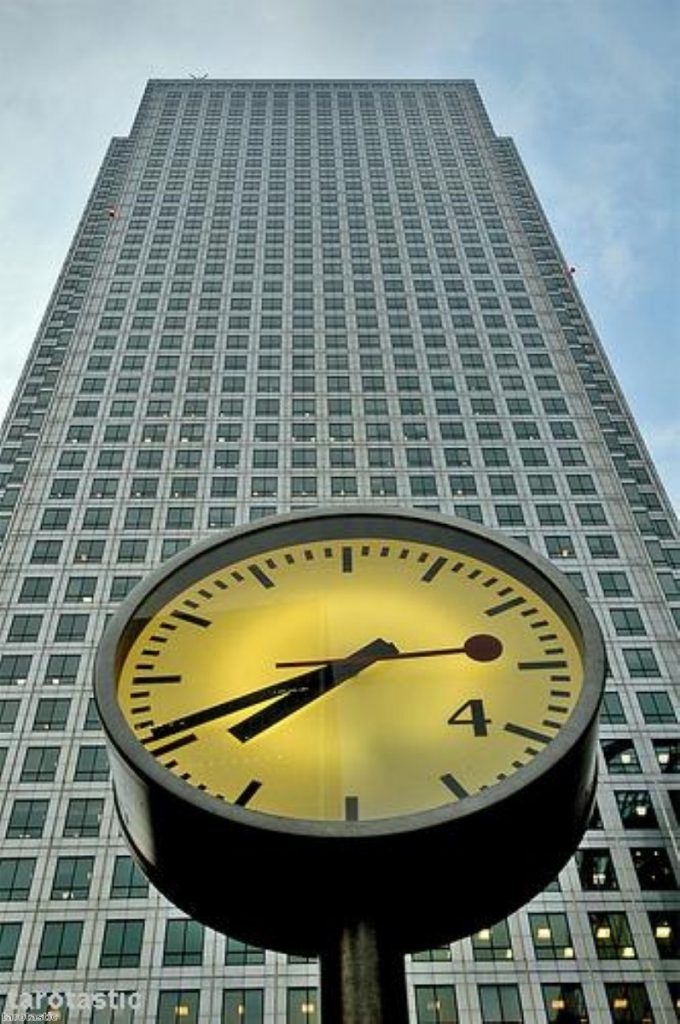Sketch: For once, an audience that approves of Cameron’s cuts
One year ago David Cameron promised business leaders he would be an unashamed "salesman". Twelve months later the pitch has worsened, but the CBI are still buying it.
By Alex Stevenson Follow @alex__stevenson
The prime minister's speech to this year's conference hosted by the Confederation of British Industry was "upbeat", according to its director-general John Cridland. An odd conclusion for an address which included words like "struggle", "fear", "very depressing" – you get the idea. This is a bleak time for Britain. Growth is stagnant and impending doom is looming on the continent. It is so bleak that Cameron was forced to resort to spotting "good signs" in the CBI's survey of confidence among business leaders – even though it showed two-thirds thinking the economic situation is going down the pan. "We need a different kind of economy," Cameron urged. One which is growing, perhaps.
This was not the hostile audience which greeted the new PM one year ago. Then the business world was distinctly frosty, uncertain of how to respond to the government's austerity agenda. Now the case is altered. The European Union, as one member of the audience put it, "seems to be becoming a dead duck". So with the eurozone countries faltering, having a firm hold of the country's finances is now becoming a great advantage for the PM.
In case anyone was not convinced by the rhetoric, the CBI helped clarify matters with an enormous graphic above the PM's head. This showed credit rating firm Standard and Poor's logo alongside three reassuring letters: AAA. "Dealing with government deficits must be line one of our plan for recovery," Cameron declared. This was a receptive audience to that argument.
Last year the prime minister made clear he was happy to be a "salesman" for Britain, embracing the idea rather than rejecting it. He did the same this time around, refusing to be embarrassed by his status. "It's part of my job," he cried enthusiastically. It would not have been out of place for him to throw off his jacket, roll up his sleeves and slap his hands together enthusiastically, like a sort of capitalist Dick Van Dyke. Not for him the shyness of a money-sensitive socialist. "I think sometimes in Britain we can be a bit coy about talking about specific deals," he said. "I'm not coy! We'll raise it again and again!"
From this speech and the Q+A session which followed, businessmen (they were mostly men) could be forgiven for mistaking ministers as nothing more than an extra marketing department. Cameron urged firms to let No 10 know if they had any concerns about government policy – anything at all. They would, no doubt, be instantly tweaked. Open season applied especially forcefully to British embassies, where firms looking for contracts were urged to "give the ambassador a call" and officials were preparing a home from home.
Of all the audiences Cameron has to face this year, this one is likely to rank as one of the friendliest. But even here the natural suspicion of anyone not in politics towards a politician always seeps through. At one point Cameron pointed out that Britain exports more to Ireland than it does to Brazil, Russia, India and China put together. "Oh God!" a suit nearby groaned. "We've heard that one before!"
When one questioner actually proposed a change of policy on bankruptcy rules, Cameron seemed uninterested. "There are advantages and disadvantages," he said. "I think we have to look very carefully before changing the rules." That is a politician's way of saying 'no'. This was not good enough for another questioner, who stood up to respond to Cameron's answer. The PM instantly turned away from her as he finished talking, emphatically refusing to give her the opportunity to talk back. Very deft. That's part of his job, too.





-01.png)